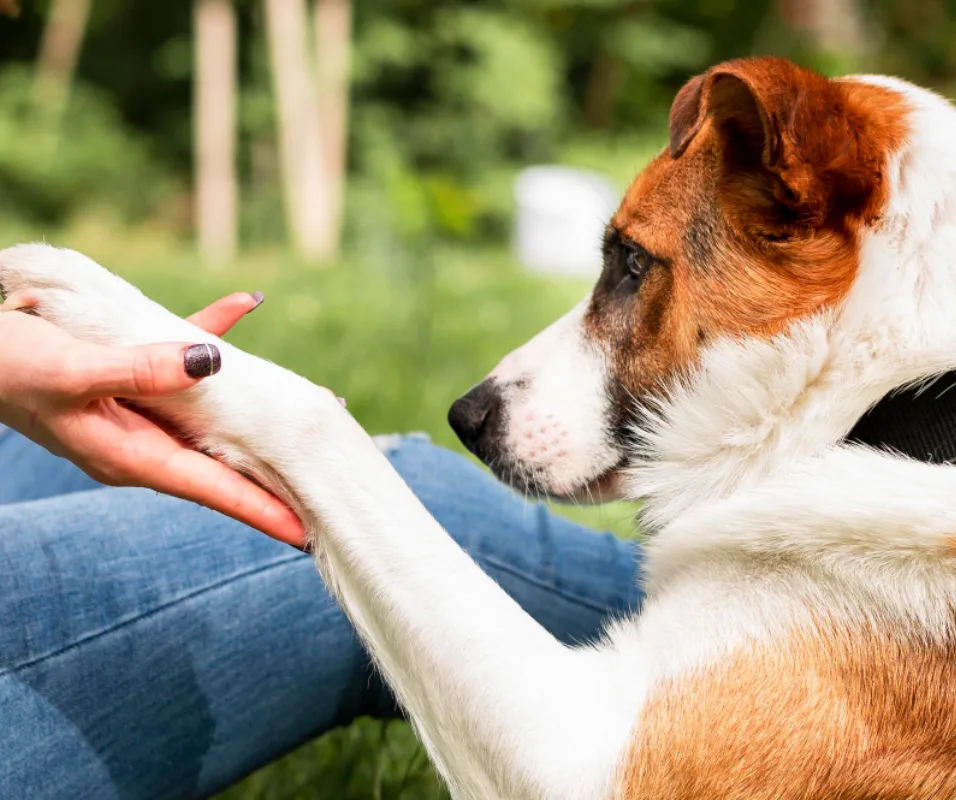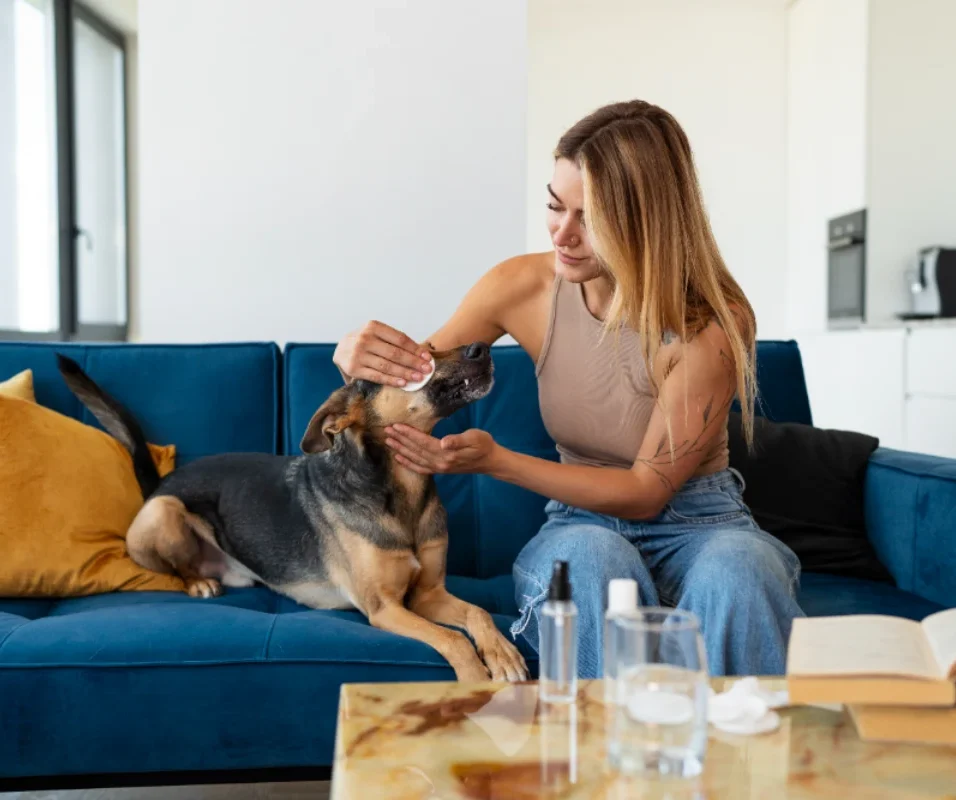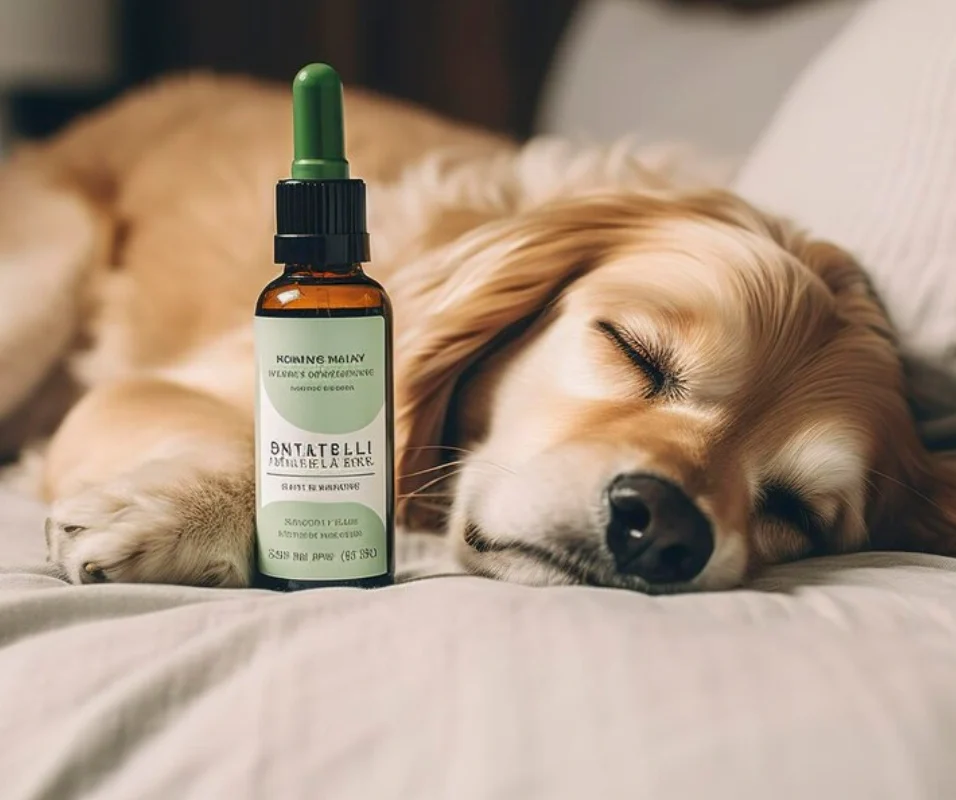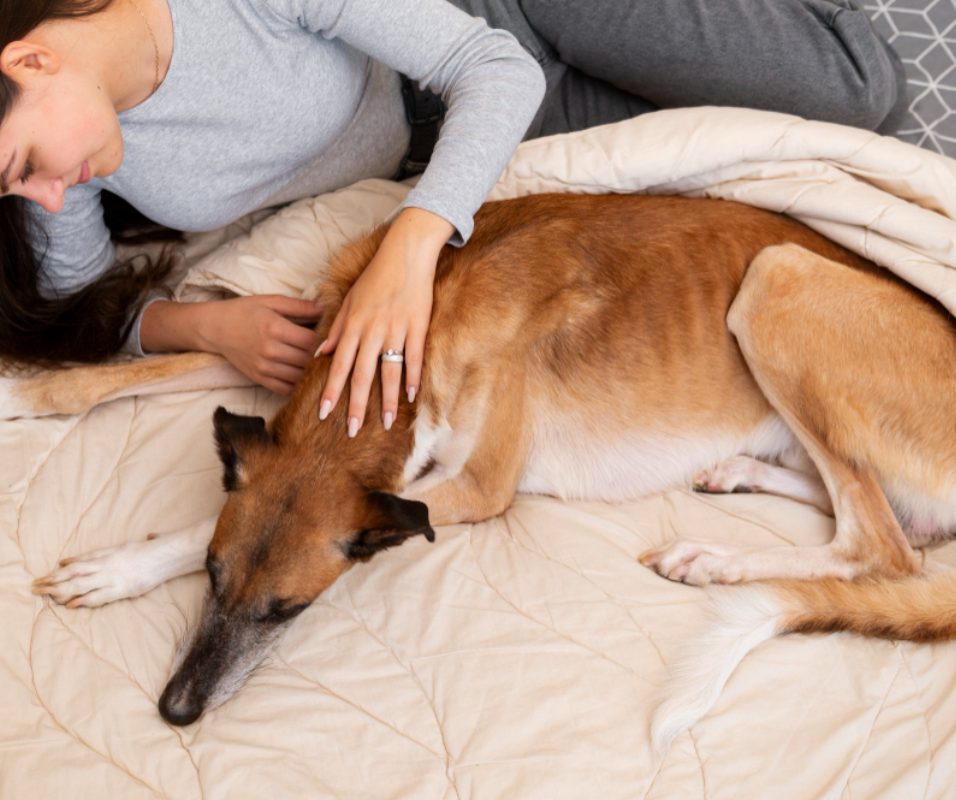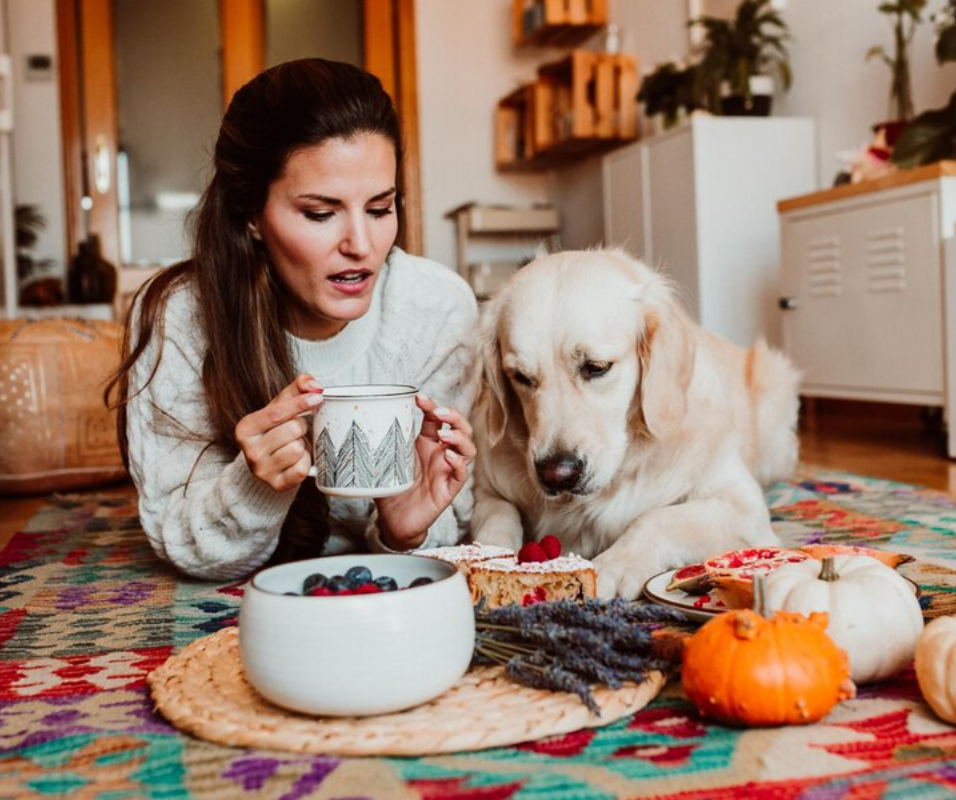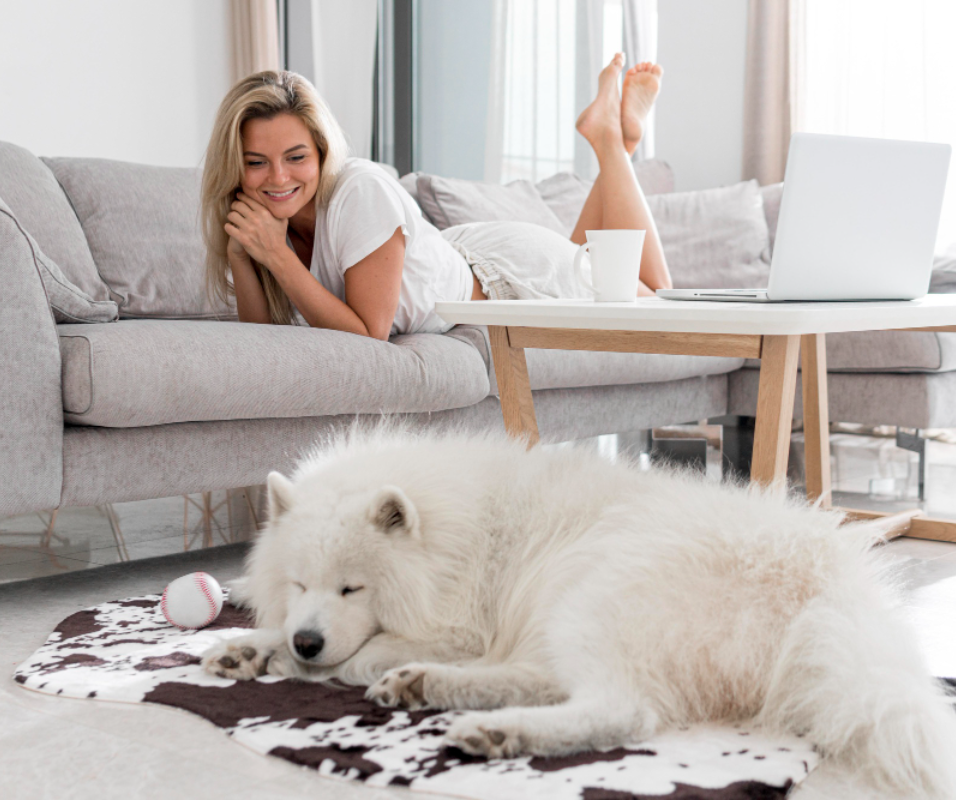When dogs lick their paws, they’re not just cleaning; they’re exploring their world and finding comfort in the simple act of grooming.
Do you ever catch your dog diligently licking his or her paws and wonder, “Why Do Dogs Lick Their Paws?” Well, it might be a way for them to cry out for help—let’s find the reasons and give them the care they deserve.
In this blog, we take a closer look at why dogs lick their paws. Practical solutions on how you might stop them, and preventive measures that would keep the paws of your pet in excellent condition.
Why Do Dogs Lick Their Paws?
Dogs lick their paws for any given reason which may include normal grooming after walks or meals. However, if a dog licks one paw too much, it may be a matter of concern because issues such as allergies could be the reason behind it due to irritants like pollen or food triggering discomfort or it might be an injury, infection, or even parasites, among others. In some instances, a dog can end up licking the paws out of boredom or anxiety. Licking can be regarded as normal and very common but becomes a reason for vet visits if it is frequent or obsessive.
According to Lauren Jones, VMD
“It can be frustrating as a pet parent to watch your pup obsessively lick, chew, and groom themselves. What defines excessive licking and grooming in dogs? Why do our pets do it and what can we do to ease their discomfort?”
Difference Between Normal and Excessive Paw Licking
Some grooming habits are occasional
Dogs naturally groom themselves, and their paws are not an exception-being licked from time to time. What seems a little unusual to a human observer is that this could be a normal behavior sometimes shortly after the walk or meal. Maybe they are picking out dirt, scraps, or some food remains stuck between their toes.
What Constitutes Excessive Licking
Paw licking, if done repeatedly or compulsively, could be grounds to be concerned about. Continuous licking may result in fur loss, redness, or even sores. The reasons for doing such behaviour may be physical discomforts or psychological imbalance, such as anxiety or tension. Observing your dog’s habits will guide you toward the difference between normal grooming and something that needs medical attention.
Common Causes of Paw Licking
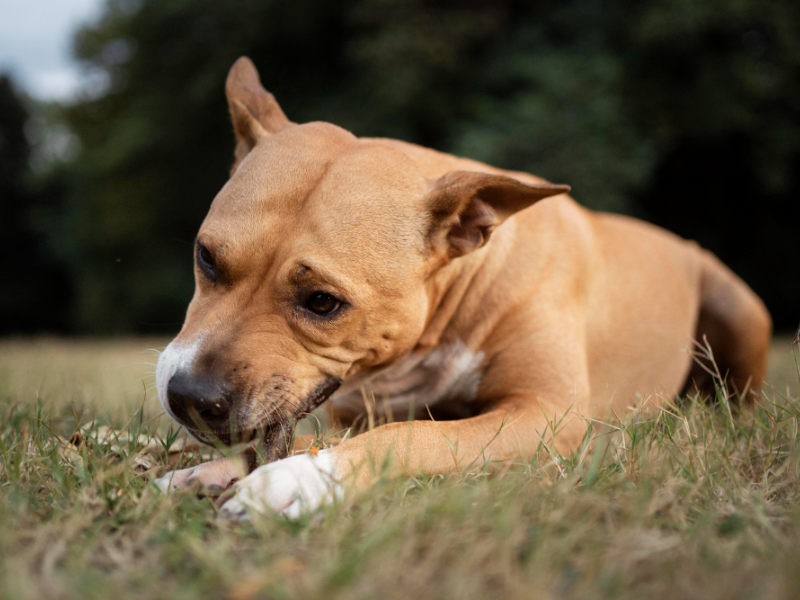
1. Allergies
One of the most common reasons why dogs lick their paws is allergies. Dogs are known to respond to environmental allergens such as pollen, mould, dust, and specific food items. All such environmental allergies make dog owners’ pets itchy on their paws, forcing them to lick their paws.
- Food Allergies
This can also be common in dogs, where they end up becoming allergic to what they eat. It could be chicken, beef, dairy or wheat and they develop itchy skin which makes them lick their paws more than usual.
- Environmental Allergies
There might also be seasonal allergic environmental causes. For example, things like pollen, grass, or even what you are using in the home to clean may irritate your dog’s paws.
2. Irritants and Foreign Objects
Dogs tend to lick their paws to get rid of some irritation caused by irritants. Cleaning solutions or salts that are applied during winter to de-ice roads prove to be irritants as do other foreign objects such as small stones, splinters, or even burrs, which get wedged between a dog’s paw pads and there is excessive licking.
4. Parasites and Infections
Parasites like mites, fleas, or ticks can make dogs over-lick their paws. These tiny creatures trigger severe itching. This irritates the skin and further prevents dogs from stopping the over-licking. Infections, bacterial or fungal, tend to cause redness, swelling, and a bad smell. These are some characteristics that exemplify how the dog tries to be soothed by licking the affected part.
5. Anxiety and Behavioral Issues
As much as people, dogs can be anxious, stressed or bored. Compulsive licking can be an emotion-related overreaction to disturbances. A dog left alone for lengthy periods or experiencing sudden changes in its environment, such as new family members or pets, may exhibit stressed behaviours like licking the paws.
6. Pain and Injuries
Physical Pain-Injuries like cuts, blisters, broken nails, or even arthritis can be painful. It appears that the dog is trying to soothe the pain by licking his paws.
How to Identify When Licking is a Problem
Symptoms to Watch For
Monitor your dog for signs that the licking behaviour may become compulsive. These are:
- Paw redness and swelling
- Hair loss around the paws
- Brown or reddish fur staining of saliva around the paws
- Cracked skin or open sores
- Limping or apparitional pain
Curious to uncover the hidden reasons behind your dog’s pawing affection? Find out the surprising truth here!
When to See a Vet
If your dog licks beyond three or four days or even shows signs of infection, it is time to consult with the veterinarian. A vet would test for allergies, detect infections or parasites, and offer medications such as antihistamines, antibiotics, or antifungal drugs.
Solutions to Stop Paw Licking
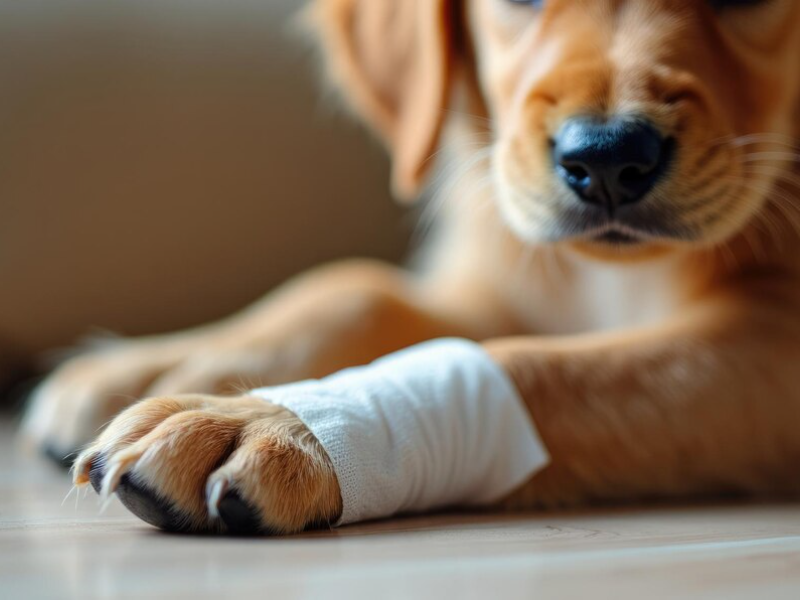
1. Infections and Injuries
Infections can be self-treated with topical creams or ointments, such as antifungal or antibacterial treatments. Licking wounds should be prevented by cleaning the wound and keeping protective gear, such as boots or wraps, on the area.
2. Addressing Allergies
For allergies to the environment, paws can be cleaned regularly to help remove allergens after walks. Food allergies might be relieved with hypoallergenic diets and the vet may prescribe drugs, including antihistamines to reduce inflammation and itching.
3. Anxiety and Boredom
Puzzle toys, walks, and playtime can provide both mental and physical stimulation to prevent boredom and stress. Other tools include anxiety wraps and calming sprays or supplements such as CBD oil that will reduce stress-related behaviours.
4. Natural Remedies
Coconut oil and aloe vera could be natural anti-inflammatories to soothe irritated paws, and a diluted apple cider vinegar rinse may come in handy for more minor bacterial infections and discourage itching.
Precautions for Paw Licking
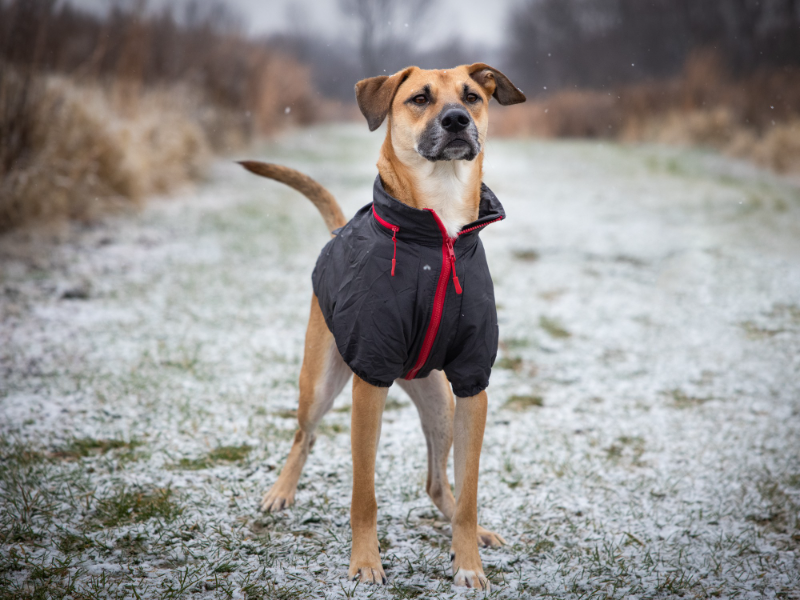
1. Regular Paw Care
Besides this, keep the paw of your dog healthy by washing the paws regularly after your dog has taken a stroll; ensure you cut the fur around your dog’s paws and check for any foreign objects with them.
2. Environmental Management
Limit your dog’s exposure to possible allergens: wash his paws right after outside activities and keep him away from rough surfaces on which he could be exposed to allergens. During the cold seasons, you may want to add some dog boots to protect those paws from salt and ice.
3. Balanced Diet and Nutrition
Ensure that your dog feeds on a healthy balanced diet with general well-being of its skin and paws. One can consider using omega-3 supplements in dogs which reduce inflammation and provide support towards good health of the skin.
Conclusion
Knowing why dogs usually lick their paws prevents the issue from manifesting further down the line. It generally means there is a problem with comfort, allergies, or something deeper medically, so it does warrant vigilance about it. Keeping the paws clean, a well-balanced diet, and getting them checked can in the end go a long way in stopping this bad habit before it gets worse. Besides this, a dirt-free and irritation-free environment for your dog can be considered as a solution. Keep in touch with your vet if you suspect a serious problem so that your dog is kept healthy and comfortable.



